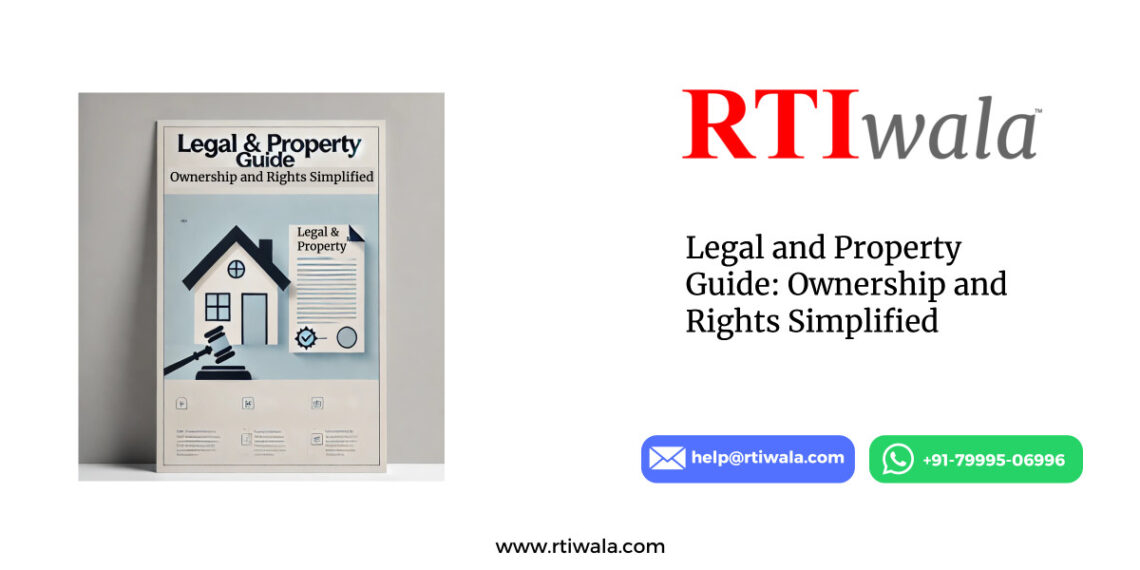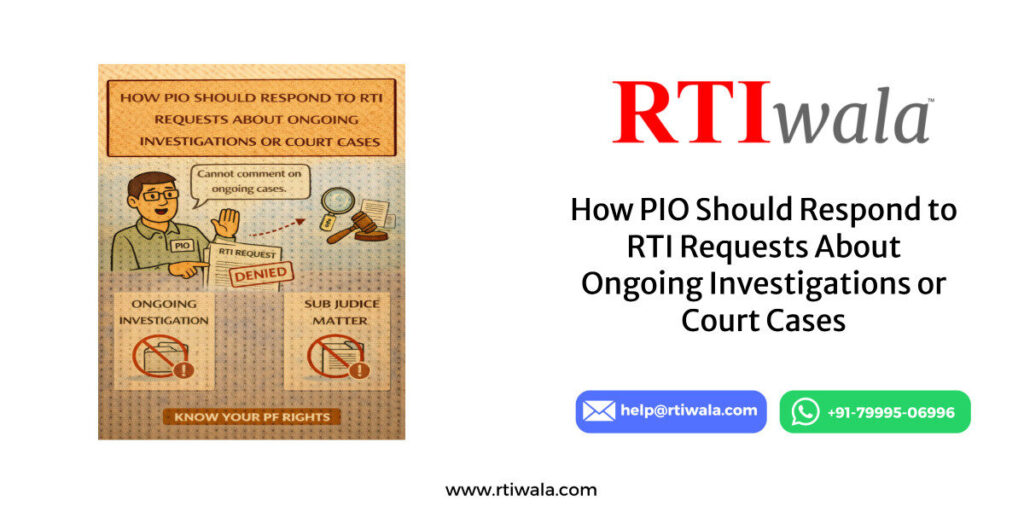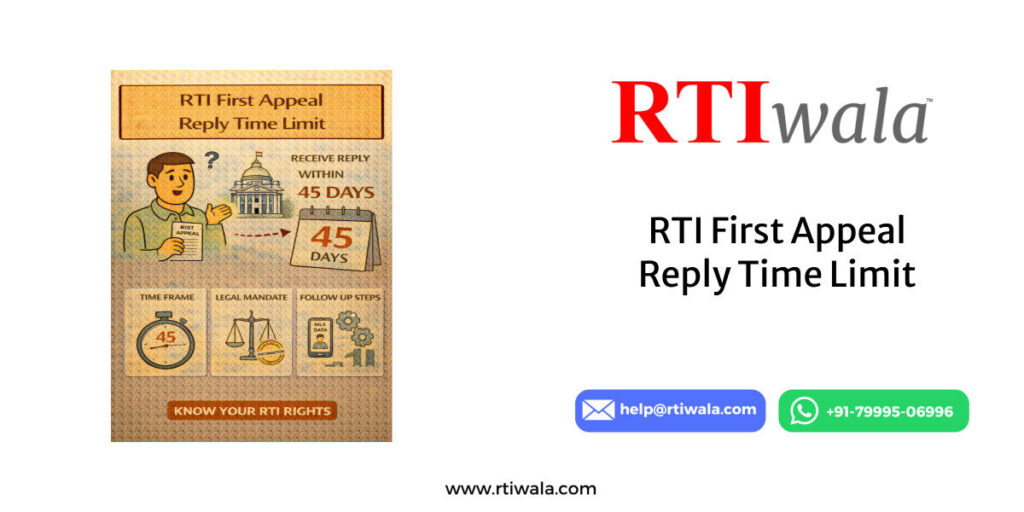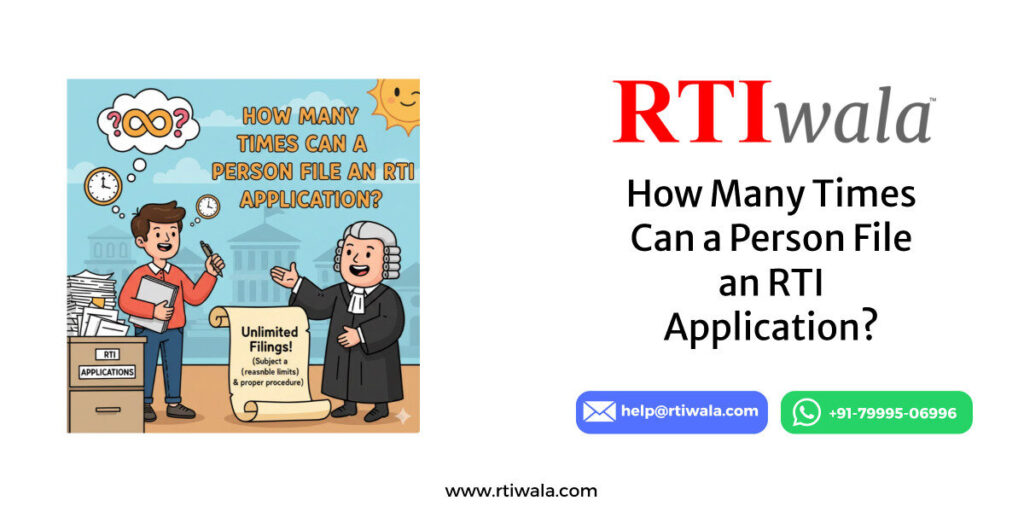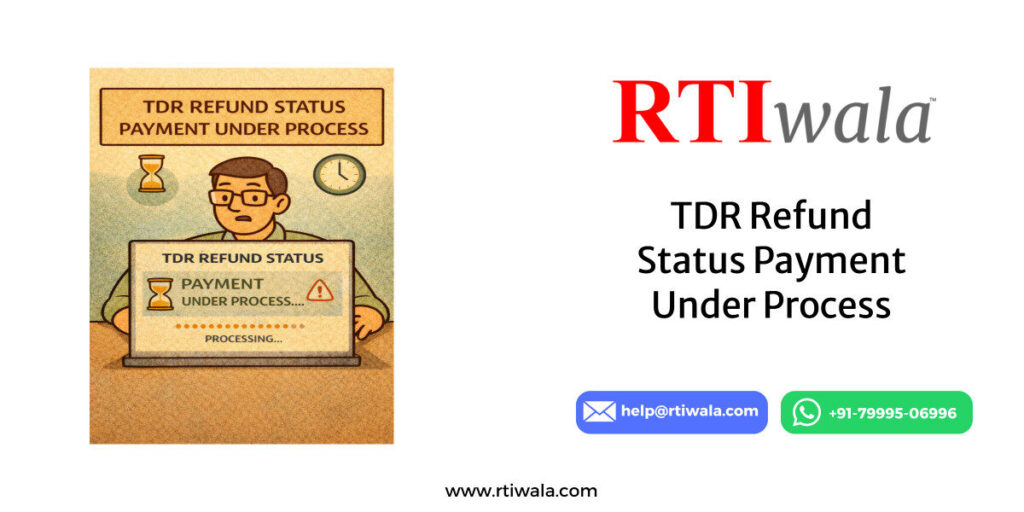Introduction
Navigating the complexities of legal and property information matters can be daunting, especially when it involves land ownership, title verification, inheritance issues, or dispute resolution. Ensuring clarity and accuracy in legal and property information is crucial for safeguarding investments and maintaining peace of mind. This guide provides insights into key aspects of legal and property information, including how to access it, its importance, and the role of the Right to Information (RTI) Act in uncovering critical details.
Why Is Legal and Property Information Important?
- Avoiding Fraud:
- Accurate property information helps prevent fraudulent transactions, ensuring that the buyer is dealing with the rightful owner.
- Establishing Ownership:
- Clear documentation of ownership rights avoids disputes and protects investments.
- Legal Compliance:
- Ensures adherence to local land laws, building regulations, and tax obligations.
- Dispute Resolution:
- Access to proper legal documentation aids in resolving property disputes effectively.
- Inheritance and Transfer:
- Facilitates seamless inheritance or transfer of property rights.
Key Aspects of Legal and Property Information
1. Land Title Verification
- A land title document establishes the legal ownership of a property. Ensure the title is clear and free from encumbrances by:
- Reviewing the title deed.
- Checking encumbrance certificates for pending liabilities.
- Verifying the property’s record with local land revenue authorities.
2. Property Registration
- Mandatory registration of property transactions under the Registration Act, 1908 ensures legal validity. Key steps include:
- Verification of the sale deed.
- Payment of stamp duty and registration charges.
- Filing documents with the local registrar’s office.
3. Encumbrance Certificate
- This certificate verifies that the property is free of legal or financial liabilities such as loans or mortgages.
- Obtain it from the sub-registrar’s office or online portals in some states.
4. Mutation of Property
- Mutation involves updating the property records in the revenue office after a sale or inheritance. This ensures the property is officially transferred to the new owner for tax purposes.
5. Legal Documentation
- Essential legal documents include:
- Sale deed
- Gift deed (if applicable)
- Will and probate (for inherited property)
- Lease agreement (for rented properties)
6. Building and Zoning Approvals
- Ensure compliance with local building codes and zoning regulations, including:
- Approval of building plans by municipal authorities.
- Adherence to land-use restrictions.
How to Access Legal and Property Information
1. Local Revenue Department
- Land records, including ownership details, are maintained by the local revenue department or tehsil office.
2. Online Property Portals
- Many state governments provide online portals where citizens can access land records, property tax information, and encumbrance certificates.
3. Municipal Corporation or Local Body
- Access building plans, zoning regulations, and property tax records from the municipal office.
4. Legal Consultants
- Engage property lawyers or consultants for a detailed review of legal documentation and compliance requirements.
5. Right to Information (RTI) Act
- File an RTI application to access government records on property-related issues, including ownership disputes, encumbrances, and tax dues.
How to Use RTI for Property Information
Filing an RTI Application
- Identify the Public Authority:
- For property-related queries, the relevant authority could be the revenue department, municipal corporation, or registrar’s office.
- Draft Clear Questions:
- Examples include:
- Who is the registered owner of [property address]?
- Are there any encumbrances or disputes associated with the property?
- What are the land use and zoning regulations for [property address]?
- Examples include:
- Submit the Application:
- File the RTI application in person, by post, or online (if applicable). Attach supporting documents like proof of identity.
- Await the Response:
- The authority is required to respond within 30 days. If unsatisfied, you can file an appeal.
Common Property-Related Issues and Their Solutions
1. Ownership Disputes
- Verify the title deed and mutation records to establish ownership.
- Seek legal intervention or arbitration if disputes persist.
2. Fraudulent Transactions
- Conduct thorough due diligence, including encumbrance and title checks, before purchasing property.
3. Inheritance Issues
- Ensure the presence of a valid will and obtain probate for smooth transfer of ownership.
4. Delayed Possession in Real Estate
- Use RERA (Real Estate Regulatory Authority) platforms to file complaints against developers for project delays.
5. Encroachments
- File a complaint with local authorities or seek legal redressal to resolve encroachment issues.
Benefits of Accessing Accurate Legal and Property Information
- Safe Transactions:
- Ensures that property dealings are legitimate and secure.
- Legal Protection:
- Protects against future disputes and legal complications.
- Financial Security:
- Prevents monetary losses due to fraud or hidden liabilities.
- Transparent Ownership:
- Establishes clear and indisputable ownership rights.
Conclusion
Understanding and accessing accurate legal and property information is critical for safe property transactions, dispute resolution, and long-term security. By leveraging resources like government portals, legal consultants, and the RTI Act, individuals can ensure transparency and accountability in property dealings. Taking proactive steps to verify documents and adhere to legal processes can save significant time, money, and stress, ultimately protecting your most valuable investments.












































